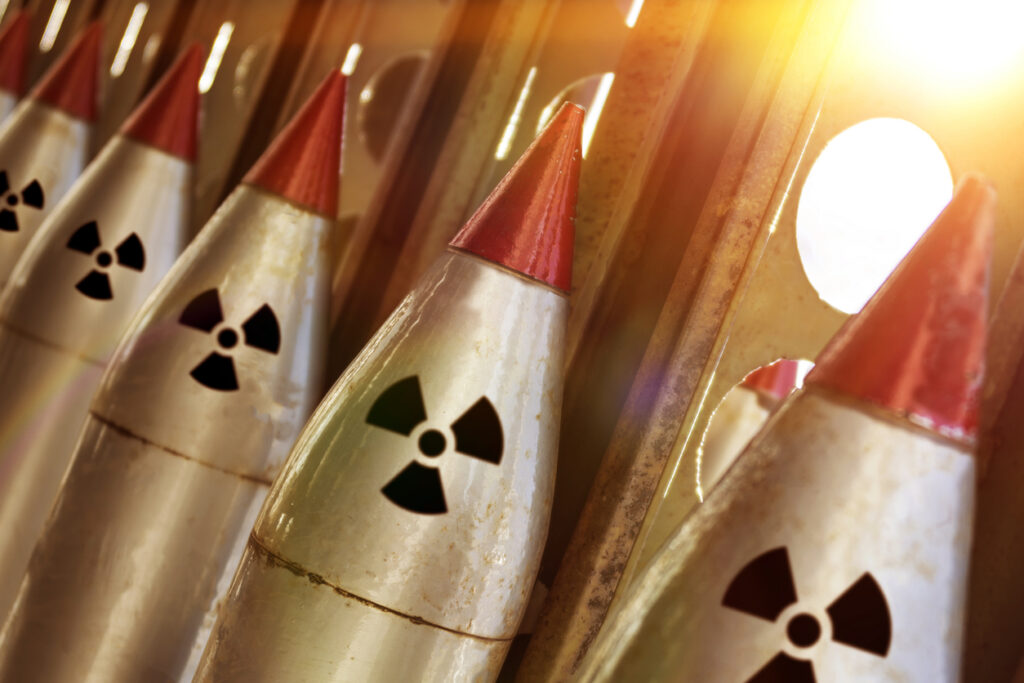On Friday, Jan. 22, nuclear weapons became illegal when the Treaty on the Prohibition of Nuclear Weapons (TPNW) entered into force. The 51 state parties to the international treaty have agreed to have nothing to do with nuclear weapons — including their development, manufacture, possession, testing, deployment, stockpiling, transfer, use or threat of use, as well any assistance to other states’ nuclear weapons programs. It effectively makes nuclear weapons illegal under international law and is poised to be the instrument for comprehensive, verifiable global nuclear disarmament.
The nine nuclear-armed nations boycotted the TPNW process and, as non-ratifying nations, are outside its legal power. According to the Nuclear Information Project, the United States has 850 nuclear warheads on high alert. Russia has a similar number, with both countries having more in reserve. Between them, they have 90% of the world’s 14,500 nuclear weapons.
Yet, along with China, England and France, they have instead reiterated their 1970 commitment under the Nuclear Nonproliferation Treaty to complete nuclear disarmament “at any early date.” The TPNW represents the well-founded suspicion of the non-nuclear nations that, after 50 years, those nuclear powers do not intend to keep their promise.
Last year, The Bulletin of the Atomic Scientists set its iconic Doomsday Clock to 100 seconds before midnight — raising alarm about the urgency of reversing existential dangers posed by nuclear weapons and climate change amid worsening world tensions, a new nuclear arms race, torn up nuclear treaties and the daily threat of nuclear war due to malfunction, mistake or hack.
The use of even a tiny fraction of the world’s nuclear arsenal, e.g., a limited exchange between India and Pakistan, would kill millions of people and put smoky soot into the upper atmosphere causing worldwide climate disruption threatening 2 billion people with starvation. An all-out nuclear war would kill, maim and traumatize hundreds of millions, plunge temperatures to ice age levels and end life on the planet as we know it.
The TPNW gives the global community a powerful new tool to stigmatize the handful of nuclear-armed nations and the financial institutions and corporations that fund and build their weapons. The United States is in the best position to organize and lead the nuclear powers to sign and ratify the treaty. However, until someone does, those states will feel the treaty’s moral — and ultimately economic — force.
The Catholic Church is part of that force. Though the Church has always condemned the use of nuclear weapons, it has allowed for possessing a nuclear deterrent as a temporary step on the road to complete disarmament. That phase ended on Sept. 20, 2017, when the Holy See signed and ratified the TPNW on the first day it was open for signatures.
Two months later, Pope Francis declared that “the threat of [nuclear weapons] use, as well as their very possession, is to be firmly condemned.” The Catechism of the Catholic Church will be changed to unequivocally condemn not only the existence of these weapons of global genocide and suicide but also the perpetual threat to murder civilians en masse that is nuclear deterrence.
Ratifying the TPNW has concretized the Church’s demand for a nuclear weapons-free world and is a giant step behind its founder who invites followers to love even their enemies and to choose the cross over the sword.
Steve Baggarly, a member of the Basilica of St. Mary of the Immaculate Conception, is with Norfolk Catholic Worker and Hampton Roads Campaign to Abolish Nuclear Weapons.

